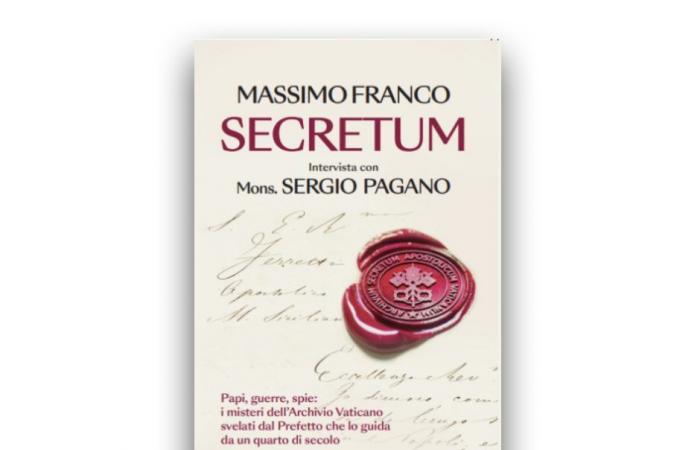Massimo Franco
Journalist at Corriere della Sera, Massimo Franco distinguished himself in 2022 with the publication of The Monasteryin this case the Mater Ecclesiae Monastery, place of the unprecedented retreat of Benedict XVI. With Secretum, Franco publishes a book interview with Monsignor Sergio Pagano, prefect of the Vatican Archives.
From the Secret Archives to the Pontifical Archives
Founded in 1611 during the reign of Paul V Borghese, the secret archives of the Vatican contain a history of the world as the Vatican preserves its memory. In 1611, the word secret in Latin means private or reserved, in this case what is specific to the pope. Since then, however, the meaning of the word has shifted to connote something not only hidden, but hidden by design. Also, in 2019, Pope Francis renamed the archives the Apostolic Archives. It is interesting to note that, according to Monsignor Pagano, the publication in 2000 of the novel Angels and Demons by Dan Brown, who had helped develop a certain dark legend about the archives, played a role in the pope’s decision.
Employed at the archives for almost fifty years and prefect since 1997, Monsignor Pagano knows everything about their contents, except of course what he does not yet know. When he took office under the pontificate of Paul VI, the archives were only lit by candlelight, for fear that an electrical short circuit could start a fire. Today, they are equipped not only with electricity, but with a computer classification system which facilitates its consultation by researchers to whom access was granted in 1881.
Hot issues: Galileo and Pius XII
Franco and Pagano review the major files of which the archives preserve the trace, the request for annulment of the marriage of the King of England Henry VIII, the pillaging of the archives by Bonaparte’s troops in 1797 and their transport to Paris, the financing of the conclave of 1922 and others.






